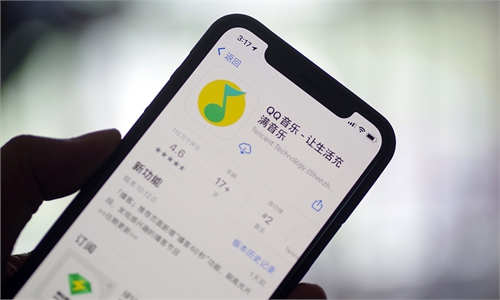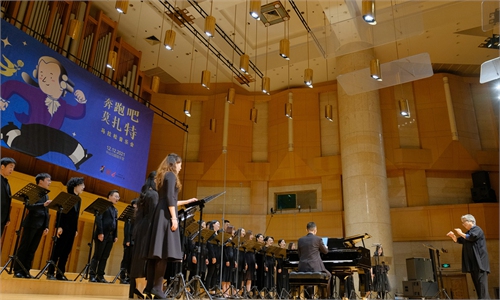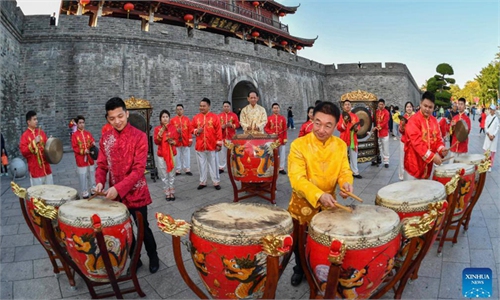ARTS / MUSIC
China’s virtual music sensation to cheer on upcoming Games

Vocaloid Luo Tianyi Photo: Courtesy of Henian
A 15 year old with gray hair and green eyes, Luo Tianyi can sing and dance even better than most superstars. However, while superstars are flesh and blood, Luo also stands out as she hails from the digital world.China's first vocaloid - a computer-generated, voice-synthesized pop star - Luo is set to perform at the 22nd "Meet in Beijing" International Arts Festival in late January to welcome the upcoming Being Olympic Winter Games.
According to the festival, Luo will sing a Winter Olympic-themed song while wearing outfits that also incorporate winter elements.
This is not Luo's only connection to the Games.
The only virtual singer officially invited to promote the Games, Luo released the Winter Games-inspired song "Time to Shine" at an online music collection event held to welcome the Games.
To celebrate the 100-day countdown online, a specially designed music video featuring Luo and other uploaders on Chinese video site Bilibili was released. The video also features the National Speed Skating Oval, dubbed the Ice Ribbon, and elements like the Chinese folk instrument suona and China's national fitness campaign.
Through AR and VR technologies, Luo will take part in "Meet in Beijing," a sideline event for the 2022 Beijing Games that is running from January 6 to February 18.
Created in 2012, Luo enjoys enormous popularity among young people, especially those under 20. The virtual star has more than 5 million followers on China's Twitter-like Sina Weibo, and tickets for her concerts sell out in minutes.
Luo has also performed to the accompaniment of Chinese pianist Lang Lang and China's national television station put her in the lineup for its Spring Festival Gala alongside Andy Lau and Andrea Bocelli.
Developed by Shanghai-based Henian Technology, Luo Tianyi and five other virtual singers have helped spur along the rapid development in China of vocaloids, a technology which first started in Japan and further developed under the influence of K-pop.





